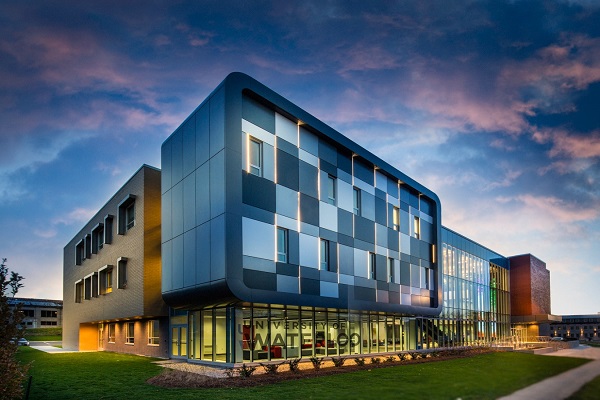University of Waterloo: Quantum technology for real world impact
RESEARCH
TALENT
On October 20, the Transformative Quantum Technologies team hosted a quantum showcase and the Quantum for Health (Q4Health) pitch competition where students and researchers demonstrated opportunities for quantum to advance health.
Transformative Quantum Technologies is a collaborative research initiative led by the University and the Institute for Quantum Computing (IQC). It aims to accelerate the development of impactful quantum technologies and lead Canada into the quantum age. There are many health care applications currently in exploration at Waterloo including advancing MRI technology and improving cancer treatment.
“The University of Waterloo was founded with a vision of uncovering solutions to the world’s greatest challenges through unconventional means. Quantum technology is a solution that continues to push the envelope of what is possible,” said Vivek Goel, president and vice-chancellor of Waterloo, in his address to the nearly 150 attendees.
Examples of these possibilities were on full display during the showcase with posters and tours of the quantum lab facilities in the Research and Advancement Centre (RAC2). Waterloo students and researchers shared their projects and learned about funding and patent opportunities to help advance their work or turn them into startups for real world impact. To date, 30 per cent of IQC researchers are involved in commercialization.
quantum demonstration
“As a leader in quantum, Waterloo is well-positioned to play a central role in supporting Canada’s efforts to commercialize technological breakthroughs and train the talent needed to bring these discoveries to market,” Goel said. He praised the vibrant quantum ecosystem and talent in Waterloo region contributing to our technological future.
Waterloo and Canada’s leadership in quantum was reinforced during the keynote address given by Nipun Vats, assistant deputy minister for Innovation, Science and Economic Development Canada. While speaking to Canada’s quantum strategy, Vats said that breakthroughs take a sustained effort and investment to keep moving innovation forward. “Sticking with important areas of investigation over the long haul has helped to realize its value … now you see ideas, that were once theoretical, come to fruition.” It is this strategic commitment that he believes is what has made Canada a leading nation in quantum technology.
Vats also addressed the Q4Health pitch competition students and researchers in the room directly. He noted that the various streams of quantum all have applications to health and that, “it’s a really exciting time to be working in this space.”
In total, 25 teams registered for the competition and 19 teams pitched their quantum ideas to advance health at the event. Some exciting applications included a non-invasive glucose monitor using graphene quantum dots, breast cancer diagnosis using photon counting computed tomography, and general anesthesiology supported with quantum sensing.
The panel of judges selected 10 winning pitches to each receive a $1,000 award.
One of the winning teams pitched an idea to use quantum enabled neutron therapy to treat tumours. The idea is an improvement on traditional radiation therapy “with a quantum twist,” said Melissa Henderson, a PhD student in the Faculty of Science. When asked what she will use the $1,000 towards, she said is planning to put it towards travelling to support her ongoing research.
Henderson is thinking about entering her idea into the larger Q4Health Design Challenge. “This pitch competition is motivation to keep going.”

